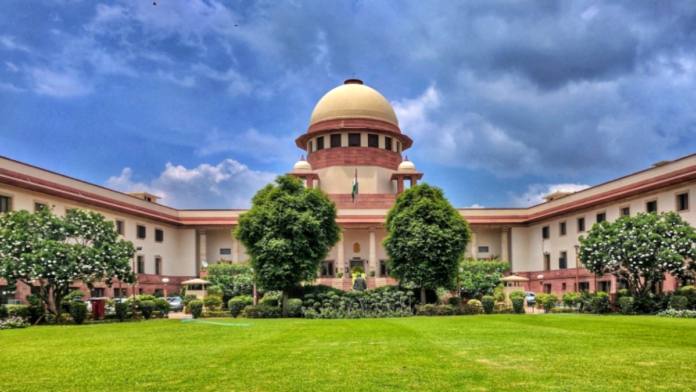
Key Points
- Supreme Court refuses interim stay on the Waqf (Amendment) Act, 2025, but orders no changes to Waqf property status or new appointments to Waqf Boards and Councils until the next hearing on May 5.
- AIMIM MP Asaduddin Owaisi and over 70 petitioners challenge the Act’s constitutionality, calling it discriminatory and a threat to minority rights.
- The Centre has been given one week to file its official response; Solicitor General assures no denotification or changes to “waqf by user” properties.
- The Act faces criticism for provisions allowing non-Muslims on Waqf Boards and expanding government powers over religious endowments.
- Opposition parties and Muslim organizations argue the law was rushed, violates fundamental rights, and undermines community autonomy.
New Delhi: The Supreme Court on Thursday took significant steps in the legal battle over the Waqf (Amendment) Act, 2025, refusing to grant an interim stay but directing the Centre to maintain the current status of all Waqf properties and suspend new appointments to Waqf Boards and Councils until further orders. The next hearing is scheduled for May.
Owaisi, Muslim Groups Lead Challenge Against ‘Unconstitutional’ Law
AIMIM MP Asaduddin Owaisi, a vocal critic of the new law, reiterated his stance that the Waqf Amendment Act is “unconstitutional.” Owaisi emphasized that during the Joint Parliamentary Committee deliberations and the parliamentary debate, he had consistently opposed the amendments, warning they would erode minority rights. “Our legal fight against this Act will continue,” Owaisi declared, welcoming the court’s move to halt appointments and protect “waqf by user” properties.
Over 70 petitions have been filed challenging the Act, including by the All India Muslim Personal Law Board (AIMPLB), Jamiat Ulama-i-Hind, DMK, Congress MPs, and others. The petitioners argue that the law infringes on fundamental rights, undermines community control over religious endowments, and was passed without adequate debate or consultation.
Key Provisions Under Fire
The Waqf (Amendment) Act, 2025, which received presidential assent on April 5 after being passed in both houses of Parliament, has sparked controversy for several reasons:
- Inclusion of Non-Muslims: The law allows non-Muslims to be appointed to Central and State Waqf Boards, a move critics say dilutes the religious character of the institutions.
- Expanded Government Powers: The Act grants collectors and government officials greater authority to decide Waqf property disputes and to denotify properties, raising concerns about state overreach and potential misuse.
- ‘Waqf by User’ Protection: The Supreme Court specifically protected the concept of “waqf by user” properties recognized as Waqf due to long-standing religious use even if not formally declared, and barred their denotification until the case is resolved.
Supreme Court’s Observations and Next Steps
Chief Justice Sanjiv Khanna, leading the three-judge bench, stressed that the “status quo” must be maintained and that the court does not want any changes to the current state of Waqf properties or institutions while the matter is under judicial review. The bench also questioned the Centre on whether it would allow Muslims to be part of Hindu religious trusts, highlighting the contentious nature of the new provisions.
Solicitor General Tushar Mehta, representing the Centre, argued that the Act is a “well-thought-out law” and requested a week to submit a detailed reply, which the court granted.
Political and Social Reactions
Opposition parties, including Congress and the Samajwadi Party, have condemned the Act as “retaliation in the guise of reform” and an attempt to seize control of minority religious assets. Congress leader Abhishek Manu Singhvi called the law an “exercise in erasure,” while others warned it could set a dangerous precedent for state interference in religious affairs.
Six BJP-ruled states have backed the law in the Supreme Court, arguing that reforms are needed for better management of Waqf properties.















































